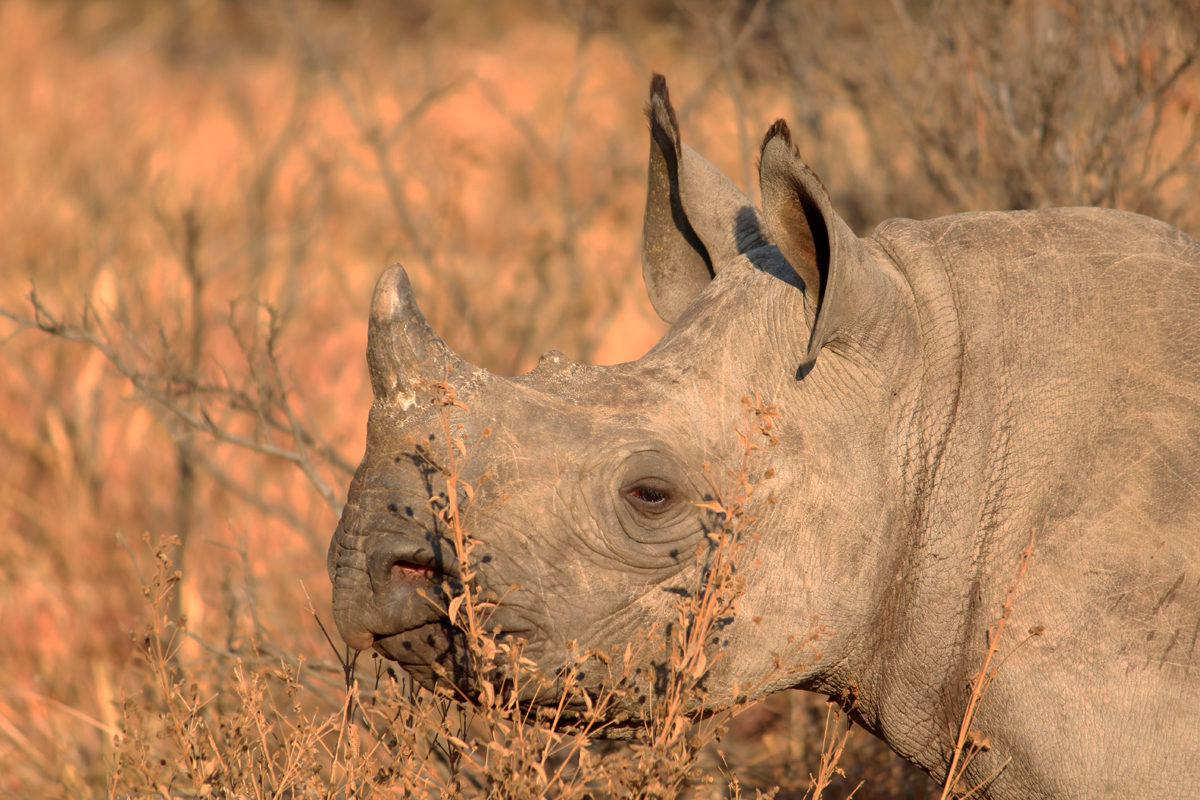The not so obvious effects of rhino poaching.
 A day with orphaned rhino calves tends to get one thinking about how this scourge of poaching will affect the new generation of rhinos, those future adults who if the status quo does not change will be senselessly hacked to death for their horns. Perhaps rhinos will evolve to be aggressive towards people and end up defending themselves against poachers, but the current rates at which they are being slaughtered does not give natural selection enough time to work its magic and besides, there is not much evolution can do against a poachers bullet. Perhaps if we were dealing with orphaned human beings the effects would be easier to consider as these are well documented. Emotional attachment disorders, juvenile delinquency and bad parenting are some of the most quoted effects of being orphaned if you are a human being. Rhinos are however not as well studied and this makes predicting the effects of being orphaned slightly more difficult.
A day with orphaned rhino calves tends to get one thinking about how this scourge of poaching will affect the new generation of rhinos, those future adults who if the status quo does not change will be senselessly hacked to death for their horns. Perhaps rhinos will evolve to be aggressive towards people and end up defending themselves against poachers, but the current rates at which they are being slaughtered does not give natural selection enough time to work its magic and besides, there is not much evolution can do against a poachers bullet. Perhaps if we were dealing with orphaned human beings the effects would be easier to consider as these are well documented. Emotional attachment disorders, juvenile delinquency and bad parenting are some of the most quoted effects of being orphaned if you are a human being. Rhinos are however not as well studied and this makes predicting the effects of being orphaned slightly more difficult.
Orphaned rhino calves are looked after by human surrogate mothers who provide as much love and affection as possible but this also means that they become habituated to human presence which may increase their risk of becoming poaching victims once they are re-released into the wild. The Rhino Orphanage has found a way around this by using strict policies against human contact and bonding calves with other calves or an adult rhino. This solves one problem, but human surrogacy cannot substitute for behaviour that is passed on from mother to child, valuable life lessons that only a calf’s mother can pass down. The work done by The Rhino Orphanage is important for restoring rhino populations and maintaining a viable gene pool but there is not much certainty about how this coming generation of young rhinos will behave and unfortunately this may be beyond the orphanage’s control.
They might not turn out to be rhino versions of juvenile delinquents or emotionally unstable adults but behavioural changes are almost guaranteed. Future rhino populations could behave differently to how animal behaviourists know them to currently behave. There could be a reduced survival rate of calves as a result of not having a biological mother to pass on those priceless parenting lessons.Aside from the not so obvious behavioural changes in future generations, ecosystems may also suffer. Nature is interconnected and so any event is likely to have a domino effect in the same way rhino poaching is likely to affect the ecosystems that rhinos share with other species. Rhinos are gardeners of the animal kingdom; the white rhinos are in charge of cutting the grass, black rhinos trim the trees and they both fertilize the soil with their dung. Their services will be lost if they go extinct but the effects of rhino extinction are not easy to predict. White rhinos far outnumber black rhinos so there is more likely to be a grassland encroachment problem since white rhinos are grazers that regulate grass that can be problematic if left to grow unchecked.
Rhino dung is also valuable to dung beetles and rhino extinction could possibly lower dung beetle populations and this could in turn lower the populations of animals that feed on these beetles. Oxpeckers have formed a mutualistic relationship with rhinos and the extinction of rhinos is likely to affect their population numbers as well. The possible medium to long term ecological effects of rhino poaching are too many to mention here and all these predictions will have low certainty since there are not many studies to back them up. Doctor Marais, a wildlife veterinarian that is involved with rhino conservation, once said that we know more about the moon than we do about rhinos as a way of emphasizing how little rhinos have been studied. The last Phd thesis on rhinos was done before the year 2000 which is surprising since rhinos are part of the revenue earning ‘Big 5’ and it is expected that they would be studied extensively as a way protecting a country’s wealth. Lack of data is a problem when trying to conserve a species and if poaching continues at current rates then academics will never get a chance to thoroughly study rhinos. At current poaching rates future human generations will never see a rhino.
– Fortunate M. Phaka
Any animal that is shot for trophy or horns, tusks, skins affects me & all animal lovers ! We get angry!!!
And when we get angry we start to mobilize against these injustices to animals. Keep fighting the good fight.
Rhino poachers are dumb